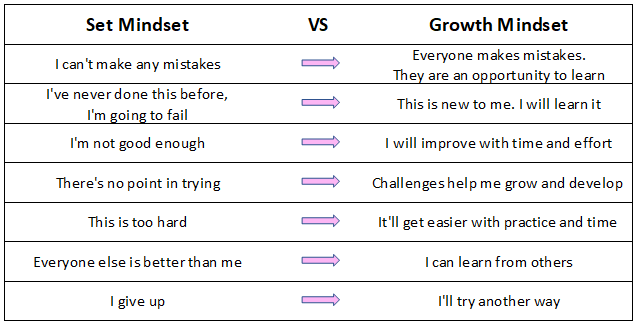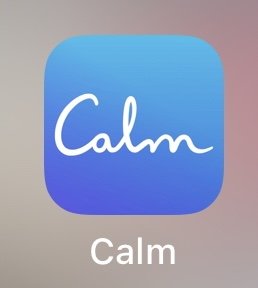I have been practicing my growth mindset to help with my coping and help me be more resilient when faced with challenges.
In a world that is constantly changing and evolving, having a growth mindset allows me to be more flexible and forgiving when things don’t go as planned. It’s been so instilled in me that if something doesn’t work out, it’s because I’m a screw up and somehow messed everything up. But there are things that are simply out of our control.
Set mindsets are absolute, viewed as unchangeable. Whereas, growth mindset is accepting that change is possible and new skills can be developed.
Below are some helpful growth mindset phrases to replace the set mindset thoughts with:
I try to be conscious of my automatic thoughts, to recognize the intrusive thoughts so that I can challenge them and shift them to thoughts from the growth mindset.
Seeing setbacks as complete failures (set mindset) almost always lead me spiraling to a dark place. But I have been choosing to see setbacks and challenges as opportunities for growth. They give me a chance to pivot, and I try to see them as potential for improvement (growth mindset).
I often struggle with intrusive thoughts so one reminder that I say to myself very often is: a thought is just a thought, and a thought can be changed. I try to fact check my own thoughts and ask myself if these thoughts are helpful. I then work on changing the thought to something more constructive, or I let the thought go if it’s not true or helpful to me. When I’m in my growth mindset, it allows me to cultivate more healthy perspectives, especially when faced with the curve balls from life.
Please be kind to yourself and don’t give up. Don’t be afraid to reach out and lean on your support system. There are many resources online, health care professionals, and groups available to help. Take it one day at a time, you are a warrior for fighting through this and it will get better. There is strength in reaching out for help. I hope my recovery journey helps provide some coping tools and let you know that you are not alone. We got this!





